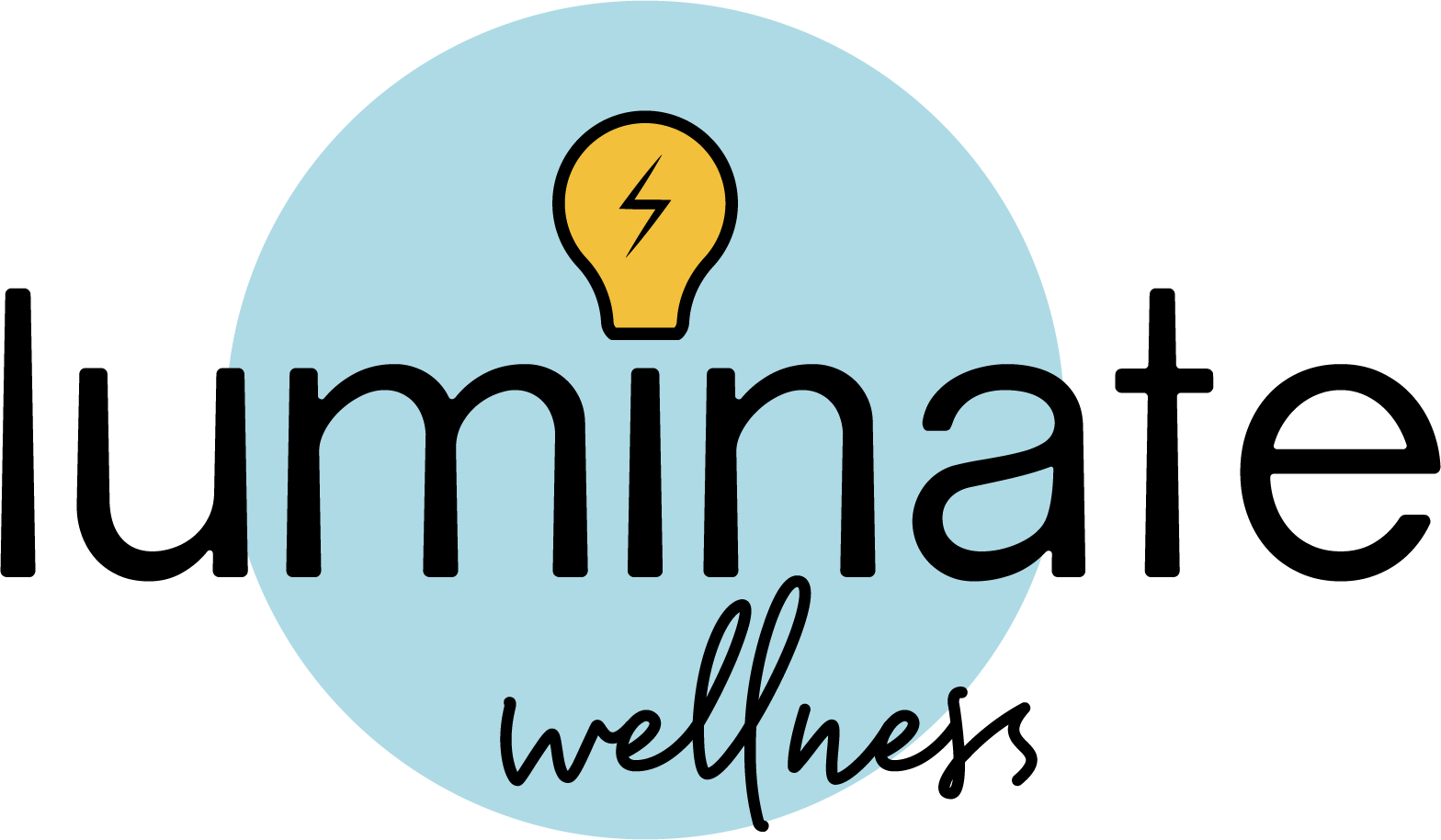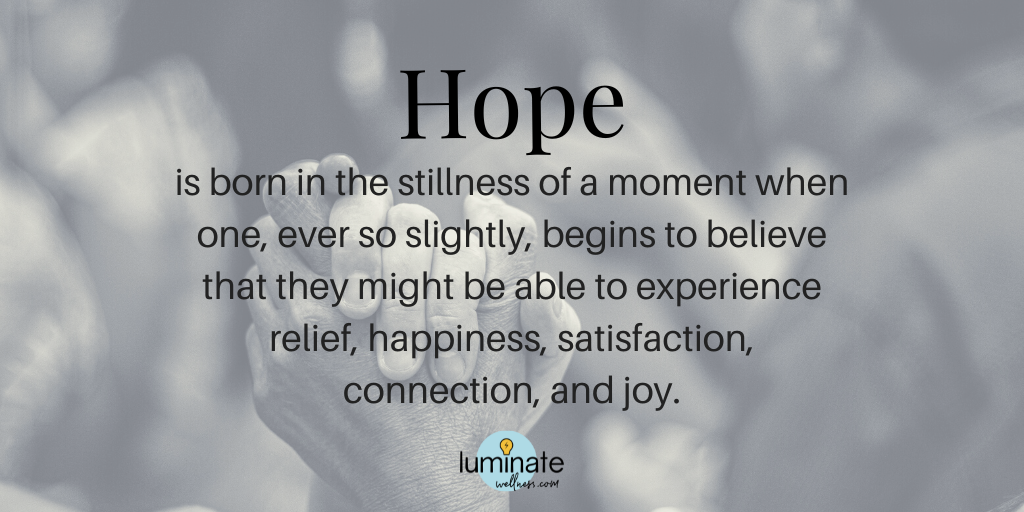Agents of Hope
(Originally written for the PSR/RPS Canada website in 2019. Written for practitioners working in the mental health field.)
If there was ever a time in history when there was any doubt about the enormous role hope plays in the recovery process, it has long passed.Still, there are many ways we can give the message of hope more prominence in the work we do.
There are so many different paths people can take on their recovery journey, but every single path begins with HOPE.
I am so grateful that I have had the opportunity to be a WRAP Advanced Level Facilitator for the past decade. (Wellness Recovery Action Plan is an evidence-based recovery program.) I have learned so much about hope from the people whom I have shared the sacred space of a WRAP group with.
Hope is the first thing we talk about. It’s the message people receive within the first ½ hour of walking into the room.
Participants hear the message that they:
· CAN get well and stay well for long periods of time
· CAN lead a happy and productive life
· CAN work toward your goals
· DO NOT benefit from dire predictions
This is all said without any qualifiers.
Hope for many starts out really, really small. I often describe hope as the wee spark that gets us out of bed in the morning. If that spark is tended to, it can grow and grow until it becomes that catalyst that fully changes our lives.
People are inspired by stories of hope.
Human beings are intrinsically storytellers. People discover their voices when provided the opportunity to share their story. We feel inspired when we hear accounts of how someone has triumphed over mental health challenges.
Supporting the Growth of Hope
Hope comes from within.
Hope is born in the stillness of a moment when one, ever so slightly, begins to believe that they might be able to experience relief, happiness, satisfaction, connection, and joy.
We can’t give anyone hope, just as we can’t empower another person.
That can be hard truth to sit with. We all get into this field to support those struggling, and we deeply want to make a difference.
However, hope and empowerment are deeply personal and come from within us. Every single person has an inner expert/teacher, and when the conditions are just right, that inner expert can begin to come forward and make themselves known.
Author Parker J. Palmer (A Hidden Wholeness) describes this situation so well.
Palmer says,
“The soul is like a wild animal—tough, resilient, savvy, self-sufficient and yet exceedingly shy. If we want to see a wild animal, the last thing we should do is to go crashing through the woods, shouting for the creature to come out. But if we are willing to walk quietly into the woods and sit silently for an hour or two at the base of a tree, the creature we are waiting for may well emerge, and out of the corner of an eye we will catch a glimpse of the precious wildness we seek.”
As practitioners, we CAN create environments where the message of hope rings clear.
We can create space for the inner expert to feel safe enough to come out of hiding. When we see a glimmer of hope show up within people, we can fan the flame.
What can we do to Support a Culture of Hope?
As practitioners we all have a hand in creating the culture within our organizations. Here are three things we can do to support the growth of a hope-filled culture.
1. Reflect on our personal biases, because we all have biases…
We all come to the table with a worldview and a set of beliefs. Our worldview is created through processing all of our life experiences. As humans, we need to figure out how to make meaning of the world around us, and that becomes the lens through which we see the world.
I find that questioning what I have always believed, though uncomfortable, has helped me to see recovery and hope in a different light.
ACTION:
As a person who supports others, spend some time reflecting on the following:
What does recovery mean to me?
Does recovery equal having a sense of agency?
Does recovery mean life satisfaction, or does it meant something else?
Is it possible for everyone to experience recovery? Why or why not?
When we are talking about biases, it’s good to look at the Clinician’s Illusion (click link for more info).
The Clinician's Illusion a term created by Cohen and Cohen that suggests we create our beliefs about recovery based on the population we serve. If we work with the same population who are using serves for a long period of time, our belief in recovery diminishes. We don’t often have the opportunity to hear from the people who get well and move on, because they are out living their lives, and not accessing services anymore.
This is another reason why sharing recovery stories, and integrating peer support into the system is so intrinsic for a recovery-oriented culture.
2. Intentionality around language
Language wields much power. Power to build up, power to tear down. Power to encourage and share hope.
ACTION:
Reflect on the following:
Does my language share the message of hope, or illness?
Am I subconsciously making a dire prediction?
Am I fanning the flames of hope and empowerment with this comment, or am I discouraging it?
With this comment or action am I supporting the development of this person’s self-determination, and choice, or will this comment take away from their growth?
Does my language inspire or support the growth of agency within this person?
3. Create space for the inner expert to show up.
Like Parker J. Palmer says, people won’t fully show up unless we create conditions where they feel safe. Trauma Informed Practice is the norm now, so we keenly aware of the role emotional safety plays in growth.
ACTION:
We can reflect on how we can create even more space for people to show up.
Do we believe that each person has an inner expert? Do I think I know better then they do?
Does the environment from when a person first walks in the door to when they leave, feel safe and comfortable?
Do I need to work on some quiet biases I may have that may be getting in the way of the person’s inner expert showing up?
What can I do to sit with the discomfort that comes when I let go of the need to see an outcome, so that the person can exercise their self-determination without my strong influence?

